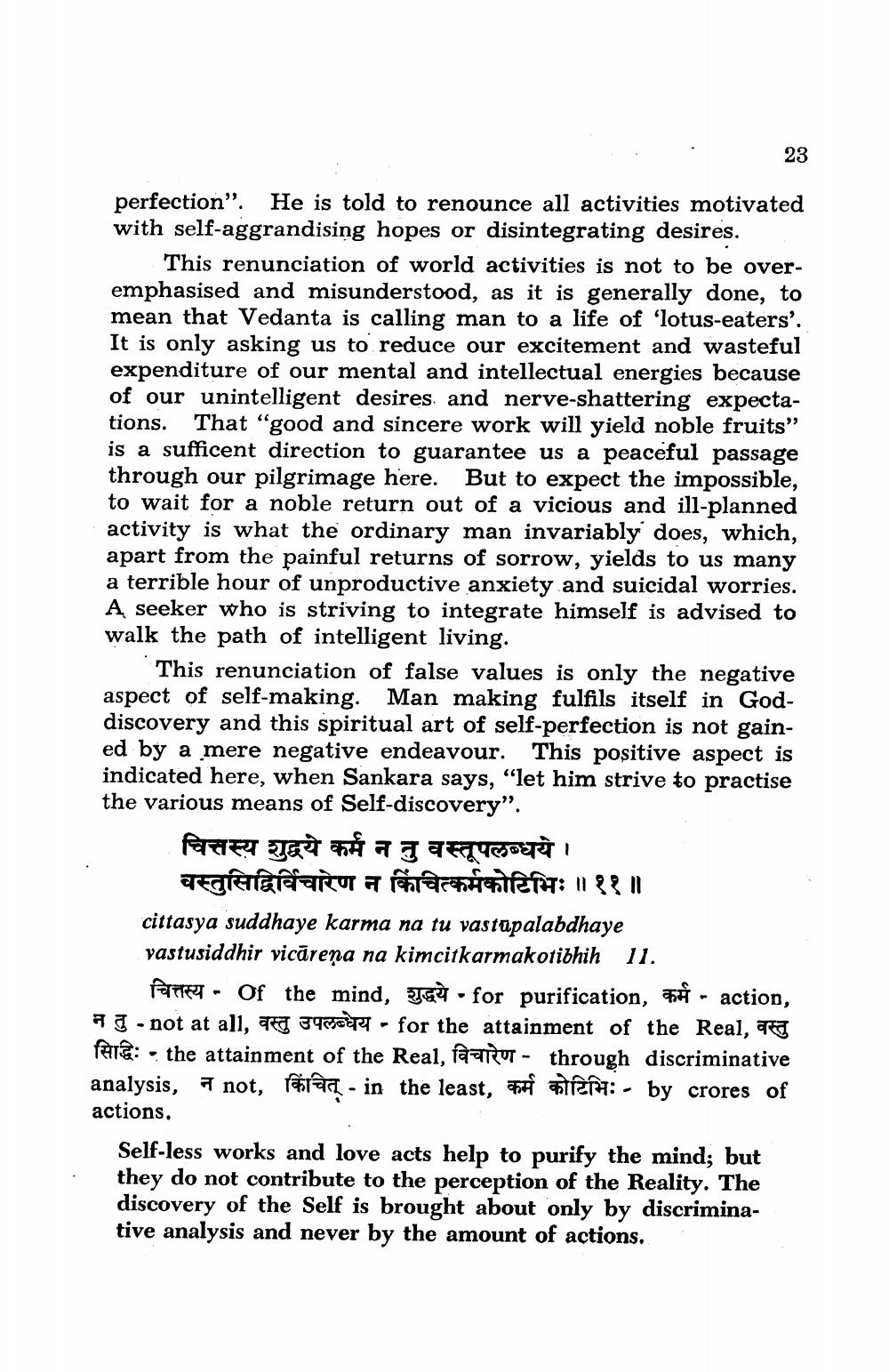________________
perfection". He is told to renounce all activities motivated with self-aggrandising hopes or disintegrating desires.
This renunciation of world activities is not to be overemphasised and misunderstood, as it is generally done, to mean that Vedanta is calling man to a life of 'lotus-eaters'. It is only asking us to reduce our excitement and wasteful expenditure of our mental and intellectual energies because of our unintelligent desires and nerve-shattering expectations. That "good and sincere work will yield noble fruits" is a sufficent direction to guarantee us a peaceful passage through our pilgrimage here. But to expect the impossible, to wait for a noble return out of a vicious and ill-planned activity is what the ordinary man invariably does, which, apart from the painful returns of sorrow, yields to us many a terrible hour of unproductive anxiety and suicidal worries. A seeker who is striving to integrate himself is advised to walk the path of intelligent living.
This renunciation of false values is only the negative aspect of self-making. Man making fulfils itself in Goddiscovery and this spiritual art of self-perfection is not gained by a mere negative endeavour. This positive aspect is indicated here, when Sankara says, "let him strive to practise the various means of Self-discovery".
चित्तस्य शुद्वये कर्म न तु वस्तूपलब्धये । वस्तुसिद्विर्विचारेण न किंचित्कर्मकोटिभिः ॥ ११ ॥
cittasya suddhaye karma na tu vastapalabdhaye vastusiddhir vicāreņa na kimcitkarmakotibhih 11.
23
fatter Of the mind,
for purification, action, न तु - not at all, वस्तु उपलब्धेय - for the attainment of the Real, वस्तु सिद्धिः • the attainment of the Real, विचारेण - through discriminative analysis, न not, किंचित् in the least, कर्म कोटिभिः - by crores of
actions.
▾
-
Self-less works and love acts help to purify the mind; but they do not contribute to the perception of the Reality. The discovery of the Self is brought about only by discriminative analysis and never by the amount of actions.




